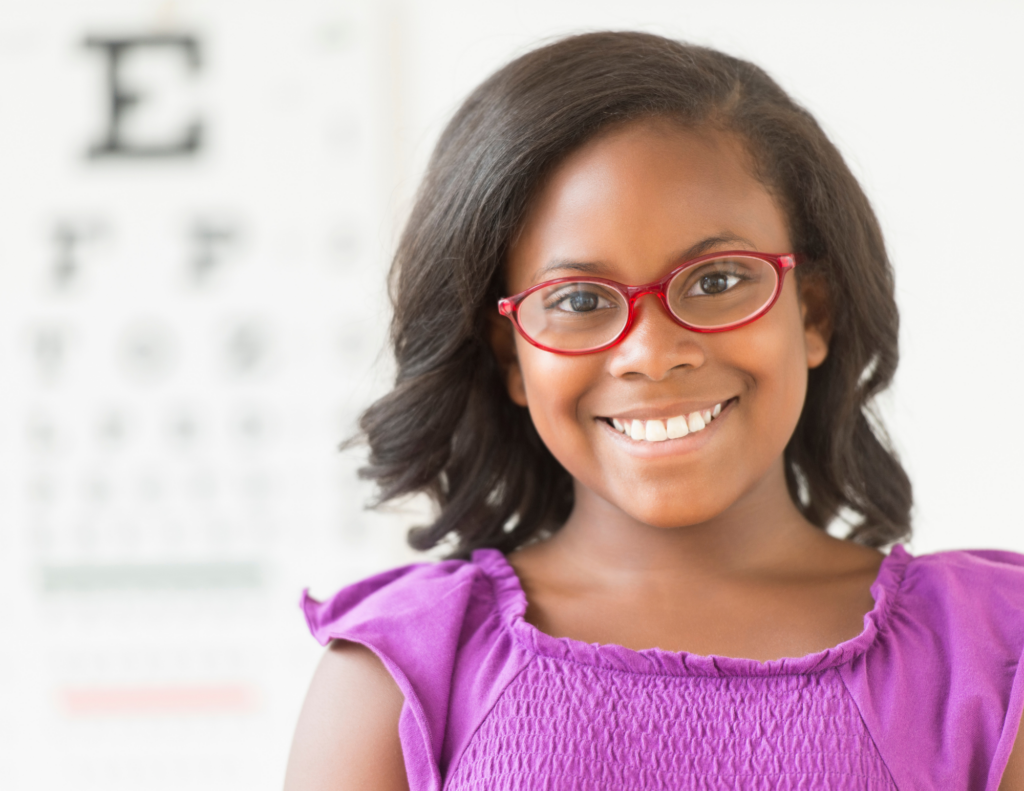In the world of parenting, ensuring the well-being of your child often involves navigating a maze of uncertainties. When it comes to their vision, the stakes are high, and questions abound. As a parent, you may find yourself pondering the intricacies of pediatric eye care, wondering about the right time for your child’s first eye exam or how to spot potential vision issues early on. We’ve reached out to an expert in pediatric optometry, James Hoekel, OD, to shed light on the top five pediatric eye care questions we get asked in our Children’s Eye Center.

James Hoekel, OD, FAAO
Assistant Professor, Ophthalmology and Visual Sciences
- Email: hoekel@nospam.wustl.edu
Top Five Pediatric Eye Care Questions
1. When is a suitable time for a child’s first eye exam?
Your child’s pediatrician is a terrific resource for determining if your child needs an eye exam. Dim reflexes and eye misalignment can necessitate the need for early examination and treatment. Eye problems like poor fixation or tracking should be evaluated as timely intervention may improve a child’s visual outcome. Eye crossing or drifting, known as strabismus, may have a much higher rate of success when treated early. If your child is having trouble seeing objects of interest, then an eye examination is warranted.
2. Does my child need an eye exam if they are seeing well inside and outside of the home?
Some pre-school children may have good development of vision in one eye and poor vision in the other, this condition is called amblyopia. Around 6% of children may have amblyopia that responds better to early treatment. Photo screening technology from the pediatrician, school, or other local resources can help to identify risk factors for amblyopia that can be further evaluated by an eye care provider. A comprehensive eye examination should provide information about your child’s visual development.
Consider your family history as this can also help determine if your child needs an eye exam early in life. If the parents, grandparents, or siblings have a history of eye misalignment or vision problems, then consider a comprehensive eye examination.

3. When should a pediatric ophthalmologist or pediatric optometrist examine the child?
It is important for parents to trust their instincts and also listen to the pediatricians and pediatric specialists. Our specially trained team of pediatric ophthalmologists and optometrists, work closely to evaluate and treat conditions of the visual system and the ocular manifestations of systemic health conditions. Some conditions are initially treated by providers in the community and may ultimately be referred here to the specialists at Washington University Children’s Eye Center. Even in young children, we are able to obtain accurate comprehensive eye examinations and assess their visual needs.
4. Does my child need an exam before kindergarten?
The answer to this question may depend on the local municipality or school district. In Missouri, there is no state mandate for an eye exam before starting school. Whereas in the state of Illinois, an eye exam is required before starting Kindergarten. Some children may have reading troubles or headaches that may be caused by focusing problems or the need for glasses or contact lenses, while other children may not have any extra visual needs.
5. What if my family is mostly near sighted?
Myopia (near sightedness) is becoming more common and frequent in our community. We now have multiple FDA approved interventions to slow down nearsightedness and reduce the rate of your myopic child’s progression. Many clinicians and scientists have found various causes of myopia onset and a number of means of correcting the myopia. Most eyecare specialists still recommend good visual hygiene, which includes limiting electronic devices early in development and increasing time spent outdoors as two good interventions to reduce the onset of myopia.
As you continue to nurture and support your child’s growth, remember that an investment in their eye health is an investment in their overall success. Regular eye check-ups, attentive observation, and an open line of communication with your pediatric eye care specialist can make all the difference in ensuring that your child’s world remains bright, clear, and full of endless possibilities.